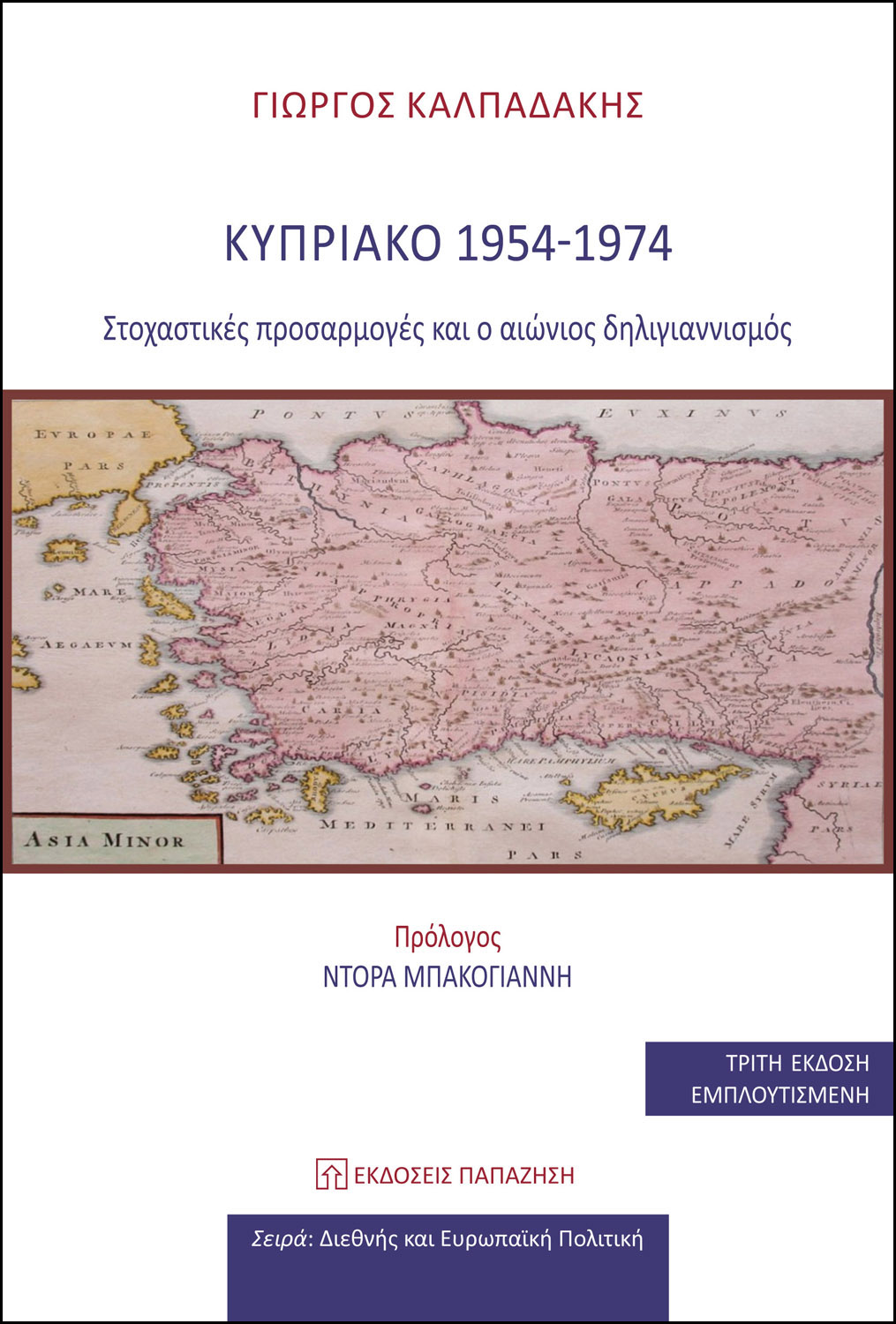Eavesdropping on the diplomats: Cyprus 50 years after
https://www.ekathimerini.com/opinion/1238872/eavesdropping-on-the-diplomats-cyprus-50-years-after/

Photo of the Hilton Hotel after the bombing by Turkish planes on July 21, 1974 in Nicosia, Cyprus. [AP]
 This coming July marks 50 years since the partition of Cyprus by an invading army, also 50 years since a brutal Greek dictatorship meekly handed over power to civilian politicians. Τhe connection between the two anniversaries was drawn most memorably by the poet-politician Alekos Panagoulis in 1975, when the tragedy was fresh: “Let us hold tight to this little liberty, which was gifted to us with the blood of Cyprus.”
This coming July marks 50 years since the partition of Cyprus by an invading army, also 50 years since a brutal Greek dictatorship meekly handed over power to civilian politicians. Τhe connection between the two anniversaries was drawn most memorably by the poet-politician Alekos Panagoulis in 1975, when the tragedy was fresh: “Let us hold tight to this little liberty, which was gifted to us with the blood of Cyprus.”Panagoulis insisted that the Greek nation must never forget its role in triggering the Cyprus tragedy, and he was right to do so despite the pain of that memory. Fifty years later, the Greek state has a much healthier relationship with its nationalist instincts.
Tools exist for turning tragedy into wisdom. One of those tools is an exemplary recent book on the Cyprus question, that of George Kalpadakis’ “Cyprus Issue, 1954-1974” (“Κυπριακό, 1954-1974. Στοχαστικές προσαρμογές και ο αιώνιος δηλιγιαννισμός,” 3rd ed., Papazisis: Athens 2024).
Kalpadakis has mined unpublished or neglected archives to brilliant effect. Among many treasures he rescues from obscurity is the writer Yiorgos Theotokas’ pithy phrase “eternal diligiannism.” This is elegant shorthand, albeit unintelligible outside Greece, for a common foreign policy pathology that elevates the “will of the people” into a magically self-executing foreign policy.
The name derives from Prime Minister Theodoros Diligiannis, who rode popular enthusiasm into the disastrous 1897 war with Turkey and then disclaimed all responsibility.
Enosis (Union of Cyprus with Greece) was elevated during the 1930s and after into a sacred cause for Greece, a cause that served as a much-needed bridge between left and right. Like any lofty idea, it was promoted and distorted by rival media groups, and also exploited by politicians on all sides in their domestic political rivalries.
Rare statesmen, most notably Eleftherios Venizelos in the 1930s, could make a clear-eyed assessment of what Hellenism ought to mean to its purported beneficiaries. Most mainland Greeks, however, were happier with incendiary nonsense, such as the famous 1964 promise by Center Union leader George Papandreou that “Enosis is coming; and with Cyprus as its springboard Hellenism will continue its course in the Middle East in the footsteps of Alexander the Great.”
Scarred national pride and short-term political benefit took precedence over the welfare or self-determination of the Cypriot people. Another vulnerable group, the Greek communities of Istanbul and elsewhere, also paid a heavy price for every misstep regarding Cyprus.
Reading Kalpadakis, one is reassured to learn that at every stage of a long-unrolling crisis, there were Greek officials at a senior level with pragmatic, future-focused views on the most effective course for their country in preserving these two bastions of Hellenism.
His study excels in the clarity with which it frames policy debates using the exchanges of Greek diplomats and politicians. In the process he defends them against accusations of defeatism or worse made by their rivals.
Greece’s diplomats were committed to Enosis as a goal. Their professional integrity caused them to implement official policy even where they had strong tactical reservations, particularly regarding Greece’s ill-concealed support for EOKA’s armed insurgency. The author follows their internal debates and external struggles. He is gentle but unmistakable in noting the mental blinders worn and then hastily removed at each stage of the Cyprus problem. In the 1950s, for example, British attempts to “de-Hellenize” Cypriots were seen as an urgent threat to Enosis.
Only the Cypriots have the right to decide, not the Greek people or any modern Diligiannis, when and how they serve as the outer bastion of Hellenism
As Greece and Cyprus raced to turn the United Nations and decolonization into a weapon in the struggle against Great Britain, few fully considered the implication that they were opening wide the door to a formal and much more dangerous role for Turkey. Poet-diplomat George Seferis would mournfully observe to his Cypriot counterpart Nikos Kranidiotis in 1957, “It was a great mistake not to take into account the Turks; we could have avoided lots of nasty situations.”
Kalpadakis describes how the technocrats were marginalized by the Ioannidis regime in 1974. A crude dictator, contemptuous of diplomatic expertise, Ioannidis had no interest in hearing counsels of restraint from Greece’s “reality-based community.” He kept his coup plans secret from the Greek officials who knew Cyprus well enough to offer valid advice, fearing they might leak the plan to Makarios or the Americans out of desperation. Most of them would never have been leakers. Perhaps they should have been?
The Ioannidis coup against President Makarios was incompetent as well as disastrous. There was no legitimate alternative to Archbishop Makarios as Cypriot leader. Chief of Naval Operations Petros Arapakis, who understood the balance of military power and the calamity a war with Turkey would bring, gave his own orders that weakened the defense of Cyprus but made that war less likely.
Greece would lose much of its legitimacy in Cypriot eyes as a mother country to which obedience was due. And Turkish officials could not conceal their delight at being handed a pretext to obtain a much larger slice of Cyprus than demography could ever justify.
The fact that the partition of Cyprus has never been undone, despite decades of intense diplomatic effort by the United Nations, backed by the US, EU, and most countries, is a depressing reminder that a divided island was from the outset the easiest and likeliest option. Cyprus’ location, the uneven balance of military power between Greece and Turkey, inflamed national sentiment in three countries, and the substantial Turkish minority on the island indicated partition as the default solution. Only brilliant, visionary Greek statecraft that mobilized the Great Powers and United Nations to their fullest potential could have achieved an outcome that better satisfied the aspirations of Hellenism.
Such statecraft was not available in 1974. Over the past half-century, Greek Cypriots have repeatedly decided that the status quo of a divided island is preferable to the alternatives the international community has offered.
Only the Cypriots, of course, have the right to decide, not the Greek people or any modern Diligiannis, when and how they serve as the outer bastion of Hellenism.
The magical thinking that brought the 1974 coup is alive and well in every country in the world. The (indeed elitist) tradition of self-denying foreign-policy professionalism Kalpadakis describes is under permanent attack.
Aspiring politicians raised on video games and TikTok will not necessarily emerge from adolescence with a usable understanding of the outside world. This masterful synthesis by George Kalpadakis is a welcome reminder that Greek society can produce tools to remedy that lack.
John Brady Kiesling is a former US diplomat and author of “Diplomacy Lessons” and “Greek Urban Warriors.”


